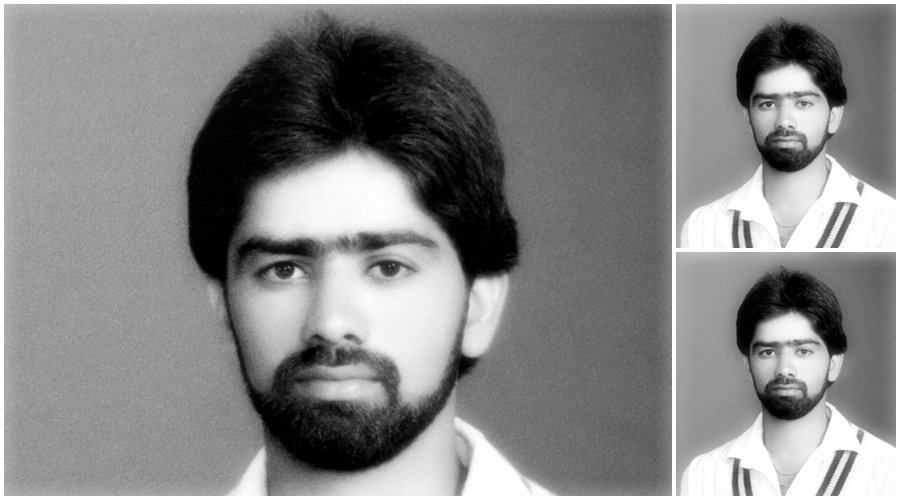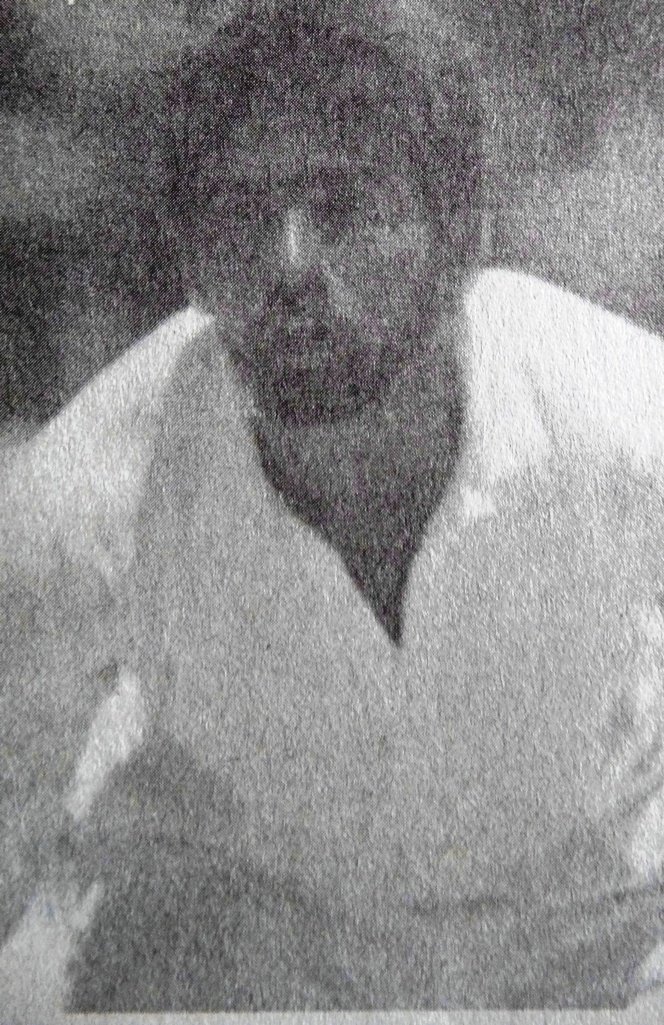Zulqarnain played in three Test matches and 16 one-day internationals for Pakistan in the latter half of the 1980s. He might have appeared in more matches at this level had he been a more prolific run-making batsman and also not fallen ill just before the start of the 1986–87 home series against the West Indies.
Zulqarnain was born in Lahore on May 25, 1962. He made his first-class debut for Lahore City in 1980–81 as an 18-year-old. He was a real, efficient, and quick wicketkeeper who didn’t take much time to impress all those who saw him. However, his batting prowess didn’t support his wicket-keeping skills. That’s why, for some time, he remained in the background.
In 1982–83, he dismissed 40 batsmen—22 caught, 18 stumped in 13 first-class matches. In 1984–85, he did even better, with a haul of 49 (40 caught, 9 stumped) in only 11 matches of domestic first-class cricket. Zulqarnain reward was a place on the Pakistan Under-23s tour of Sri Lanka in the same season.
In 1985–86, he was given his first cap for Pakistan, when he replaced Saleem Yousaf for the last two of the five one-day internationals against the West Indies at home. He has been Saleem Yousaf understudy on the Pakistan tour of Sri Lanka that followed in 1985–86.
Pakistan skipper Imran Khan was so impressed by Zulqarnain that he chose the youngster for all three three-Test matches there. He also played in all three ODI’s against the hosts and kept his place in all four additional limited over’s matches in Sri Lanka, which comprised the 1985-86 Asia Cup competition and the John Player Gold Leaf Trophy event that included New Zealand also.
Zulqarnain was Pakistan’s first-choice wicketkeeper on the subsequent tour of Sharjah, also in 1985–86, where he played in all three Austral-Asia Cup ODI’s including the historic final against India, in which Javed Miandad hit the incredible six to Chetan Sharma. Pakistan won the trophy in an unbelievable way.
In this popular match, Zulqarnain, however, was bowled first ball by Chetan Sharma when batting at number 10 while trying to heave the pace bowler out of the ground. With A single by Tauseef Ahmed and the six by Javed Miandad (off Sharma) soon after, Pakistan had won the match.
Zulqarnain and Anil Dalpat reported being ill before the start of the 1986–67 home series against the West Indies. Wicketkeeper Saleem Yousuf returned, and Zulqarnain was not required again until after the 1987–88 Reliance World Cup, staged in the Indo-Pak subcontinent, had ended.
Following injury problems for Saleem Yousuf, he replaced the latter in the last two matches of the ODI series against England at home in 1987–88. Saleem Yousuf reigned supreme again for a period spanning a year and eight months when Zulqarnain played in the first two ODI’s of the home series against India in 1989–90.
Saleem Yousaf returned for the last match, and Zulqarnain never played for Pakistan again. In his only three Test matches that were all played in 1985–86, Zulqarnain scored 24 runs at an average of 6.00, with the highest of just 13. He dismissed 10 batsmen behind the wicket — eight caught and two stumped.
In his 16 ODI’s from 1985-86 to 1989-90, his contribution was 18 runs at an average of 6.00, with the highest of 11 not out. As a wicket-keeper, he held 18 catches and stumped five batsmen for a total of 23.
From 1980-81 to 1994-95, Zulqarnain played first-class cricket for Lahore City (1980-81 to 1994-95), Pakistan Railways (1981-82 to 1987-88), House Building Finance Corporation (HBFC) (1989-90 to 1990-91), and Pakistan Automobile Corporation (PACO) (1992-93 to 1993-94).
In his 109 first-class matches at this level, he scored only 1,345 runs (average 12.22) with the help of just two half-centuries. He, however, totaled an exact 300 dismissals in his career, composed of 237 catches and 63 stumpings. His inability to make big scores can be judged from the fact he crossed double figures in only 50 of his 142 innings in first-class cricket.
Zulqarnain made his highest score in first-class cricket in his last such match — for Lahore City against Karachi Blues in the final of the 1994-95 Quaid-e-Azam Trophy Championship, at the Arbab Niaz Stadium in Peshawar. As Lahore City was beaten by an innings and 180 runs, Zulqarnain scored 80, not out batting at number nine in his team’s second inning.
His only other score of fifty-plus had come almost two and a half years earlier, when he made an unbeaten 52 (at No. 10) for PACO against United Bank at Sahiwal in a 1992-93 Patron’s Trophy Championship match. Zulqarnain’s major tours with the Pakistan national side were to Sri Lanka (1985–86) and India (1986–87). He also toured Sri Lanka in 1984–85 with Pakistan Under-23s, Kenya with Pakistan B in 1986–87, and later, with the same team went to Zimbabwe for the same season.
He also made the senior team tour to Sharjah in 1985–86. In 1987, Zulqarnain assisted the Pakistan team touring England in a couple of matches. A year earlier, in 1986, he had played for Pakistan against India in a limited over’s match in Harrogate, England, arranged in aid of ‘Help the Aged’.
He was also a member of the Pakistan team that played in the Hong Kong Sixes tournament in 1992. With his cricketing career over, Zulqarnain went back to his family business in Lahore’s Azam Cloth Market area. He also joined the Tableeghi Jamaat and remains one of its very active members.
Several sportsmen, including cricketers Saeed Anwar and Mushtaq Ahmed too, joined him and the now Zulqarnain can be seen in Lahore and several other places in his crisp white attire and long, flowing beard. His interest in cricket has not diminished in any manner, though.

